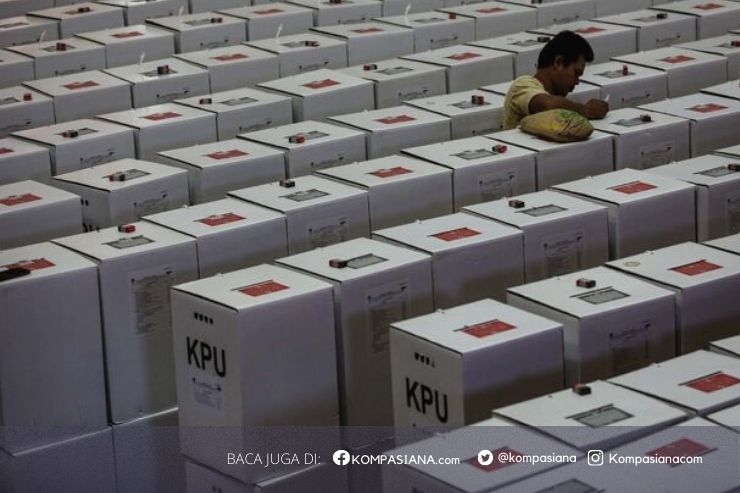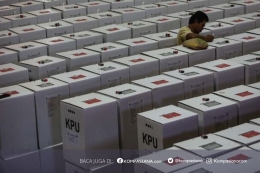The South China Sea has become the center of global attention, not only because of its rich resources, but also territorial disputes involving a number of countries. For ASEAN, this conflict poses a maritime security dilemma that demands a collective response. Amidst the push and pull of national interests and geopolitics, how can ASEAN maintain regional stability while maintaining regional solidarity? This paper discusses these dynamics and ASEAN's strategy in facing these challenges.
- Result and Discussion
ASEAN, as a regional organization in southest Asia, is in a difficult position in maintaining maritime security in the region, especially in the south china sea. Some of the main dilemmas faced by ASEAN include:
1. The dilemma between maintaining regional stability and defending national interests: Each ASEAN member state has diverse national interests related to the South China Sea. On the one hand, ASEAN seeks to maintain regional stability to promote economic growth and cooperation. However, on the other hand, each country also has national interests that need to be defended, such as territorial claims and access to marine resources. Conflicts between national interests and ASEAN's collective interests often pose challenges in formulating common policies.
2. The dilemma between confronting a major power (China) and maintaining ASEAN solidarity: China as a major power in the region has great interests in the South China Sea. ASEAN faces a dilemma in dealing with China's claims and actions. On the one hand, ASEAN wants to maintain good relations with China as a major trading partner. On the other hand, ASEAN also needs to ensure that international interests and norms are respected.
3. Dilemma between soft power and hard power approaches: ASEAN tends to adopt soft power approaches in resolving disputes, such as diplomacy and dialog. However, in the face of increasingly complex situations, hard power approaches such as enhancing military capabilities are also being considered. This dilemma arises because the use of military force can increase tensions and trigger conflict escalation.
- ASEAN's Collective Response
ASEAN has endeavored to address the South China Sea disputes through various cooperation mechanisms. However, the effectiveness of these mechanisms is still debatable. Some of the mechanisms that have been established include the Declaration on the Conduct of Parties in the South China Sea (DOC): This document provides a basis for countries involved in the dispute to manage differences and avoid actions that could complicate the situation. However, the DOC is still general in nature and has no legally binding force. Next is the Code of Conduct (COC): The COC is expected to be a more concrete framework in regulating the behavior of countries in the South China Sea. However, the COC negotiation process has been slow and has not yet reached a final agreement. (Bangun, 2021)
Some of the factors that hinder the effectiveness of ASEAN cooperation mechanisms include differences in national interests. Each ASEAN member state has different national interests related to the South China Sea. This makes it difficult to reach consensus in formulating joint policies. There is also pressure from external forces. The involvement of major powers such as the United States and China in this dispute further complicates the situation and puts ASEAN in a difficult position. (Sitompul, 2022) As well as the lack of an effective dispute resolution mechanism, the existing dispute resolution mechanism within ASEAN is not strong enough to address complex disputes such as the South China Sea. The power imbalance between ASEAN member states and China makes some countries reluctant to take actions that could trigger conflict.
- Analysis of Factors Affecting the Success or Failure of ASEAN Response
The success or failure of ASEAN response is influenced by several factors, such as ASEAN unity. The more solid ASEAN unity is, the more effective the response can be. However, different national interests often hinder the formation of strong unity. Support from partner countries such as the United States, the European Union, and Japan can put pressure on China to act more constructively. A strong leadership role of ASEAN member states is also crucial in promoting cooperation and overcoming differences. A clear, concrete, and binding mechanism for cooperation is essential to achieve effective results. (Maksum, 2017)
ASEAN's collective response to the South China Sea disputes faces various challenges and obstacles. Despite significant efforts, the effectiveness of existing cooperation mechanisms is still limited. (Roy, 2014) To improve the effectiveness of its response, ASEAN needs to continue to strengthen internal consensus, improve diplomatic capacity, and leverage support from partner countries. In addition, it is necessary to periodically evaluate the existing cooperation mechanisms and make adjustments if necessary.
- Factors Affecting Response Effectiveness:
1. ASEAN Internal Factors
- Solidarity: The level of unity and solidarity among ASEAN member states is crucial. If there are significant differences in interests, it is difficult for ASEAN to take a firm and unified stand.







